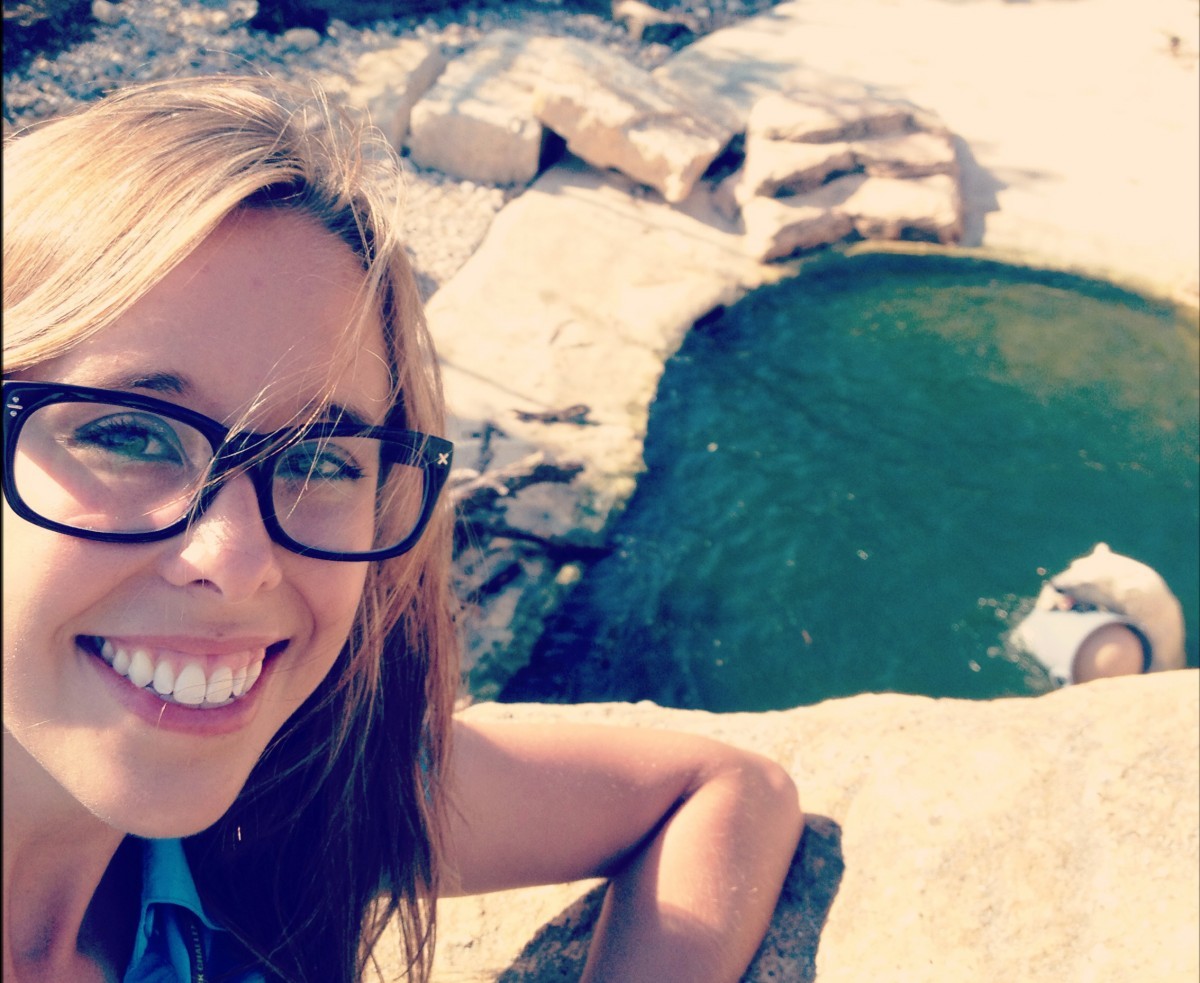
CANDID: Meet Jill Bueddefeld
Jill Bueddefeld still can’t believe her hobby as a kid growing up on a southern Manitoba farm was collecting stamps and rocks. But she loved it, and from it she gained one of the most touching stamp collecting stories you may ever hear.
Now, when she is not canoeing or hiking, she’s researching how places like zoos can impact people’s views on environmentalism and sustainability.
Bueddefeld is one of the roughly 3,800 students enrolled in the University of Manitoba’s Faculty of Graduate Studies. UM Today sat down to chat with this charming individual.
PhD Candidate: Jill Bueddefeld
Studying in: Department of environment and geography
PhD Co-Advisors: Professors Mary Benbow and Christine Van Winkle
UM Today: When you’re at a party, what do you tell people you do?
Jill Bueddefeld: That I do nature-based tourism research, looking at how people learn about the environment and have potentially meaningful tourism experiences.
And you examined Journey to Churchill for this, right?
Yes, I did that for my master’s and my PhD will expand on that work.
My master’s looked at what people learned from these experiences and we developed something called post-visit resources. It’s already a thing but it’s only been tested in Australia so we developed one for the zoo here and distributed it to a treatment group. And then we compared learning and behaviour change between a group of visitors who have been to the zoo versus those who got this post-visit treatment that told them how to be more sustainable.
So what did you find?
We also did an assessment of the zoo’s interpretative centre and they had a bunch of objectives – some were interpretive, some emotional and some behavioural. They did well on a lot of them, which is kind of surprising because you think these visits are often quick. I mean, kids are screaming, people have to go to the bathroom, they’re rushed, and so you wonder what people are actually getting from it.
And a fair amount, it turns out…. Even these short interactions can be really meaningful.
So people in general are supportive and caring of conservation but there this disconnect between what we know is a problem, and knowing what our role in that problem is.
Would this be for, say, climate change?
Exactly.
Is that because it’s such a daunting challenge?
It’s so daunting, that’s the problem. Like, what do we do? What’s my role?
My research addresses this problem by facilitating and telling people things like, here are six things you can do to have an impact.
Zoos can play a really important role in social change because they reach such a large and broad audience. They are able to communicate these messages and hopefully trigger people to start thinking about these environmental and sustainability issues. And with these post-visit resources you sort of wind up being able to facilitate that process more directly.
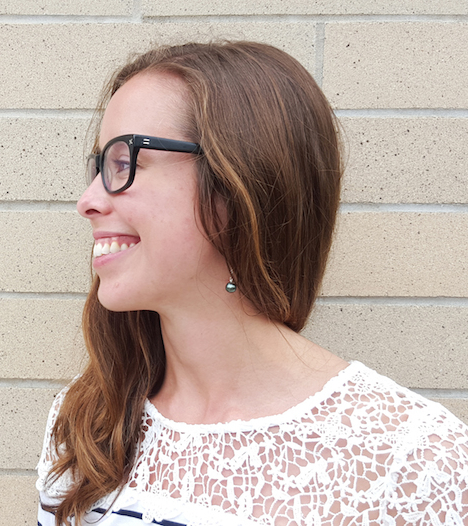 Is your PhD work looking at the same thing?
Is your PhD work looking at the same thing?
It’s sort of similar but we’re looking at comparative experiences – so Journey to Churchill and Churchill itself, the actual town.
What I’ve learned from this is that behaviour change is really, really hard to measure…
One of the biggest things we found in the study was that people made changes in their lives that weren’t necessarily the ones we suggested. So the survey data showed no change, but all the interview data showed that people were making changes. That was interesting.
So people were telling us they made all these changes but they didn’t put them on the survey because they weren’t on our list. So they created a butterfly garden, or installed solar panels at their cabin, or hung their laundry to dry. Things like that.
We make changes in our lives that are really specific to us and I think zoos and other places like them need to facilitate more than dictate. Don’t say here’s what you should do. Rather, they should say, here are some problems, now think critically of what your role is in that.
What did you want to be as a little girl?
I wanted to be a game farm manager – helping wild animals back into nature.
I grew up on a farm so this wasn’t totally left field.
Where did you grow up?
In southern Manitoba near the border. It was a grain and oil seed farm. My dad liked to travel so he didn’t want to be a dairy farmer.
He had a lot of animals growing up and he hated it. It’s so much work. Dairy farmers work so hard.
Did you help out on the farm?
All the time.
What are your hobbies?
I like gardening – veggies and flowers. I’m also obsessed with training my goldendoodle, she’s the cutest little goofball.
What’s your first memory?
Oh man! Actually it was my first birthday. I remember I lost a balloon my grandpa gave to me.
Best advice you have received?
The best thing anyone has ever told me was from my dad. He said, you need to be kind to people no matter who they are or what their position in life is.
Kindness is super important. And I found that to be true in my research. I had so many participants and the number of nice people who stopped to help me with my research at the zoo was overwhelming – how kind people were every day. I know that’s cheesy to say, but it really was. And it’s important to me now.
Being smart and good at what you do is important, but I like to work with people that are also just genuinely nice and supportive of one another… So I’m really thankful I work with people who are just nice people – they are kind and pleasant to be around.
What are your biggest zoo visitor pet peeves?
People thinking that animals are there for their entertainment. People banging on glass. Those sorts of things.
What’s your favourite animal at the zoo?
It sounds lame, but the polar bears.
I spent so much time there and got to know them and their different personalities.
Who is your favourite?
I think Hudson is still my favourite. He was the only bear when I was doing my master’s there, and he’s just a ham.
Least favourite animal?
The peacock. It snuck up behind me and scared me almost daily with its loud call (which is actually called a scream). It was so annoying.
Biggest regrets in life?
I should have traveled a bit more before taking on these commitments. I did a lot, but…
Favourite country?
That’s a tough one, but favourite place I visited was probably Peru or the Cook Islands – the snorkeling was amazing there.
What’s your prized possession?
I have a fancy globe from my dad and some stamps from him as well. He passed away not too long ago.
And years ago when we were travelling in New Zealand as a family, I collected stamps, which is terribly boring hobby. Stamps and rocks. Anyway, we were in New Zealand and I found these health stamps that I just loved. And I was 12! Who loves health stamps!? But I did. But they cost pretty much all of my spending money for the last week so I decided not to buy them – we had a lot of other things to do. So I left them and regretted it, and lamented them for a full year.
My parents went back 10 years later for some anniversary trip and my dad tracked down this guy in the same city and bought the same stamps. Same colour and everything – he even remembered the right colours! And he gave them to me for Christmas that year. So that’s by far my favourite thing.
What’s been the most interesting thing you discovered in your research?
When I did the post-visit stuff I didn’t think it would actually work.
Like, people won’t change? They won’t care?
Yeah. They won’t care. People won’t want to help me in my research. They’ll be mean to me. I assumed all those things. But people were soooo nice. And the biggest thing I found was that I couldn’t believe the changes between the quantitative and qualitative findings. I could not believe it. I could not believe how different they were – so it was such a big wake up call to the importance of doing mixed methods research.
It was exciting because it showed that, hey, we can enact changes in people but not in the subscribed way we planned. People are going to take things and run in a completely different direction and that needs to be supported.







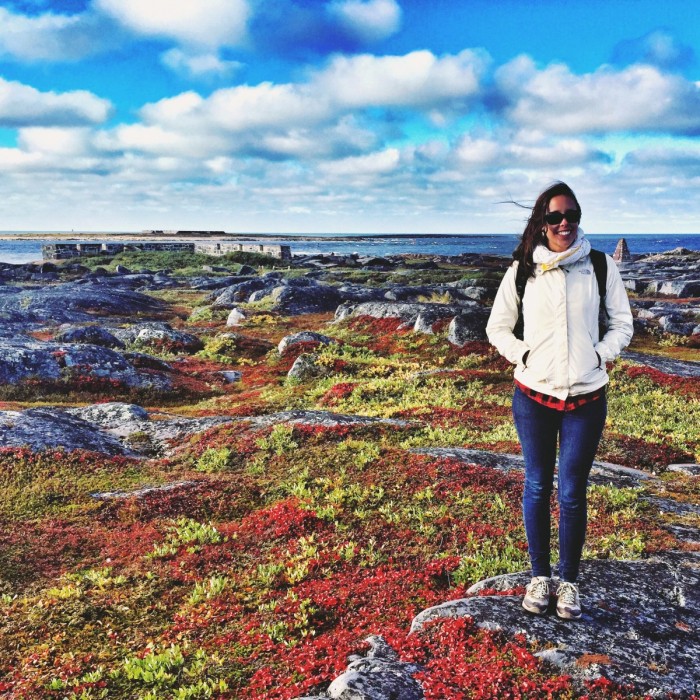
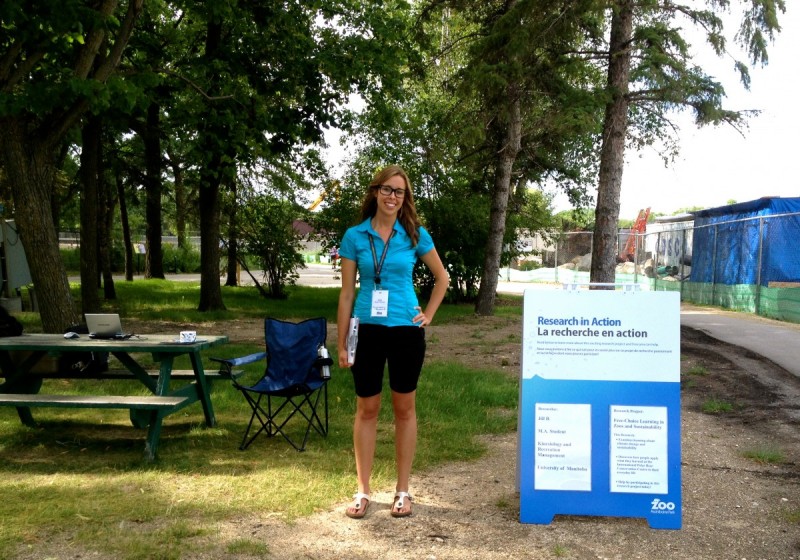
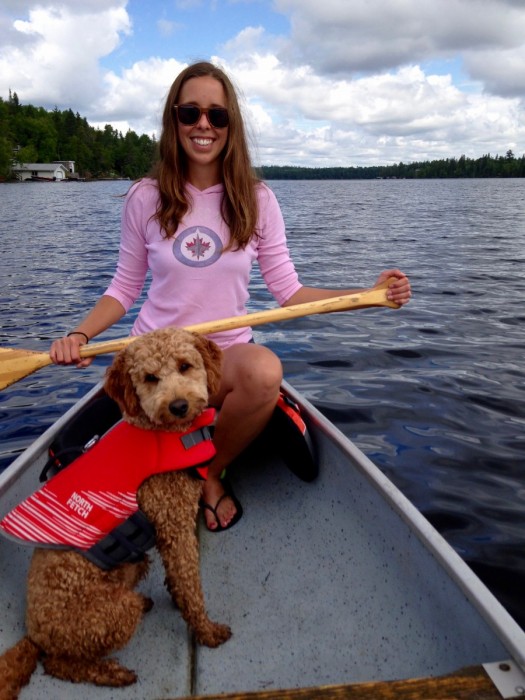

Your observations and opinions remind me of your father. Great-aunt Verna